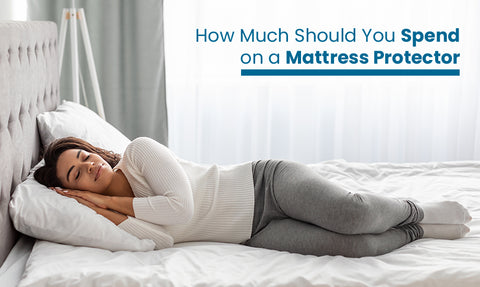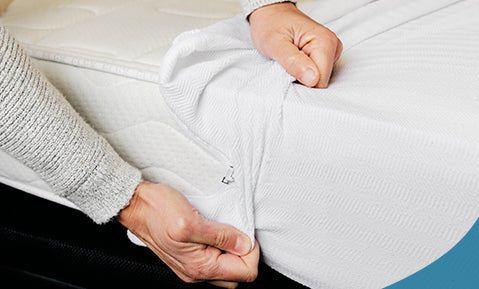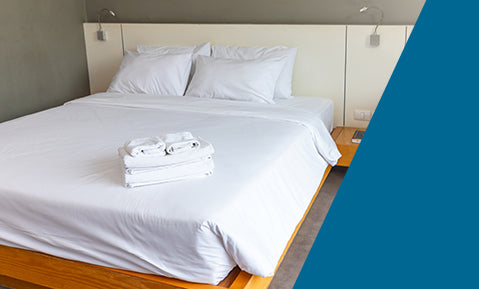
People say that you can weigh less if you get more sleep. It is true. While you are not sleeping, your body gets cooked up a perfect recipe for weight gain. When you are short on sleep, it is easy to depend on a cup of coffee to get moving. You might get tempted to skip exercise and takeout for dinner, and you will turn in late. If this cascade of events happens a few times each year, there is no problem. But, as per WebMD, more than a third of Americans are not getting enough sleep on a regular basis. Experts agree that getting enough shut-eye is vital to your health and well-being. It also affects your weight, as does diet and exercise.
How does sleep deprivation affect the metabolism rate?

Sleep is like nutrition for the brain. The average person needs seven to nine hours of sleep per night. If you get less than that, your body will react in ways that make it even the most determined dieter to go straight to Mcdonald's outlet. If you sleep too little, it triggers a cortisol strike. Researchers discovered that when directors cut back on sleep for 14 days, the amount of fat weight they lost dropped by 55%. It happened despite the fact that their calories remained constant. Sleep deprivation causes grogginess. When your body does not respond to insulin, it has difficulty processing fat from your bloodstream and ends up storing it as fat. It's not so much that sleeping makes us lose weight. However, getting too little sleep slows your metabolism and contributes to weight gain.
Sleepy brain
Sleep deprivation primes your brain to make bad choices. It is a function of the frontal lobe of the brain, which is responsible for decision-making and impulse control.
You’ll feel as if you’re drunk and don’t have the mental clarity needed to make sound decisions.
A study in the American journal of clinical depression found that when people get deprived of sleep, late-night snacking increases. Such people are more likely to choose high-carb snacks.
WebMD highlights that the University of Chicago claims that sleep-deprived participants choose snacks with twice as much fat as those who slept at least 8 hours. A second study finds that sleeping too little promise people to have bigger portions of all foods. Adding it all together, a sleepy brain appears to have more junk food while also lacking the impulse control to say no. We will tell you three ways sleeping help you lose weight.
Sleep helps you enhance your physical activity

Physical activity and sleep are mutually exclusive. Lack of sleep decreases physical activity. If there is a lack of physical activity, it can lead to worsened sleep. Numerous studies have shown that regular exercise can reduce the time it takes to fall asleep and increase the overall quality of sleep across people of all age groups.
Furthermore, a lack of sleep can result in daytime fatigue, making you less motivated to exercise. It will make you feel less active. When you are sleep deprived, you may expend fewer calories in a day.
It can make achieving a calorie deficit affect your athletic performance by reducing the following.
- Fine motor skills
- Reaction time
- Problem-solving skills
- Endurance
In short, getting enough sleep can increase your motivation to be more active. It will enhance your acetic athletic performance, contributing to weight loss. Being physically active can also improve your sleep quality.
Better sleep helps you have better self-control

Getting a full night's sleep helps you make a healthy food choice. Lack of sleep will change the way your brain works and affect decision-making. after a night of poor sleep, not just the bowl of ice cream looks more rewarding. But, you will have a harder time practicing self-control.
Poor sleep decreases your control and decision-making abilities. It gets limited to the intake of food, rich in calories, sugar, and fat. It helps you avoid weight gain associated with short sleep. Usually defined as fewer than 6 to 7 hours, it gets repeatedly linked to a higher body mass index and weight gain.
As per Healthline, twenty studies including more than three lakh people found that 41% increased obesity risk among others who slept fewer than seven hours per night. in contrast, sleep was not a factor in the development of obesity in adults who slept for about seven to nine hours.
Although the lack of sleep is the only factor in the development of obesity, research claim that it also affects hunger levels.
When you get overtired, your brain's reward centers rev up. While you might be able to squash your comfort food cravings when you get well-rested, the sleep-deprived brain May have trouble saying no to the second slice of cake or pizza.
Ghrelin is a hormone produced in the stomach that alerts the brain to hunger. Its levels are high before you eat, when your stomach is empty. It slows down after you eat.
Leptin is a chemical produced by fat cells. It suppresses your appetite, as insulin-like growth factor 1 labels indicate (IGF-1).
In addition, many sleep disorders, such as sleep apnea may get worsened with weight gain. Unfortunately, it can lead to a cycle of poor sleep, which leads to weight gain. Weight gain will lead to poor sleep.
Bottom line
If you try to lose weight, not getting enough sleep can sabotage your efforts. Lack of sleep gets going to poorer food choices. It will lead to increased hunger and calorie intake.
If your weight loss efforts are not producing results, it might be time to check your sleep habits. Although individuals vary, a grown-up needs about 7 to 9 hours of sleep each night.
Getting needed rest can make all the difference in helping you achieve your weight-loss goals.












